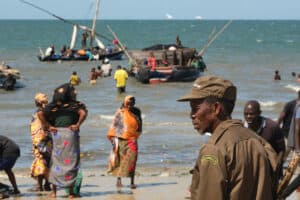Nersa presented its annual report and performance report to the portfolio committee on electricity and energy on Tuesday.

National Energy Regulator of South Africa (Nersa) executives do not believe that their R54 billion payment for a tariff blunder requires public consultation.
Nersa’s senior management appeared before the Parliament’s portfolio committee on electricity and energy on Wednesday where they detailed the entity’s annual report for the 2024/25 financial year.
As well as Nersa’s performance of that 12-month period, committee members asked questions about the legal challenge facing the energy regulator and Eskom.
Temporary halt of R54 billion payment
AfriForum last week obtained a court order to temporarily halt Nersa’s R54 billion payment to Eskom in lieu of a tariff calculation error.
When calculating Eskom’s multi-year price determination, an error in Nersa’s figures led to shortfall that Eskom valued at R107 billion.
Negotiations brought that down to R54 billion, which AfriForum vowed to challenge in September, after which they secured a court order to pause the payment to await additional deliberations.
AfriForum stated the settlement was unlawful due to a lack of transparency, with Eskom arguing that the civil rights group did not have the right to intervene, nor was public participation required.
Nersa Chairperson, Thembani Bukula, agreed with Eskom, insisting the correction payment was above board.
“It is our view as Nersa that this was not done in secrecy. But this was not a process that follows the National Energy Regulator Act,” Bukula told the committee.
“This was a process that follows the judicial review system which does not require participation of the public, and in this particular instance, was a decision which was in error.”
Nersa must file papers with the Gauteng High Court by 23 October, while AfriForum considered the order a victory for consumers and households.
“AfriForum will ensure that the public’s voice is heard and that Nersa and Eskom are held accountable for their decisions,” stated AfriForum’s advisor for local government affairs Deidré Steffens.
Enforcement and compliance
Nersa’s performance report for the last financial year stated a 6% annual drop in achieved targets from 97% to 91%.
This totaled 68 targets achieved out of a possible 75 categories, with targets covering the regulation of the electricity, piped gases, petroleum pipelines industries, as well as support functions.
Among the targets not met were those on improved licensing processes and well as targets on enforcement and non-compliance.
Targets were also broken down into subcategories, and only 31% (nine out of 29) of the enforcement plan audits were executed, while 25% (three out of 12) were achieved for non-compliance reports.
Bukula explained that this poor enforcement and non-compliance performance was due to a withdrawal of the framework for compliance monitoring.
He stated that when Nersa found a municipality that was non-compliant, the process of establishing a tribunal was a one “riddled with legal issues”.
Bukula added that a system of “naming and shaming” was yielding minor results, but that the Auditor-General (AG) of South Africa mandated that a tribunal must be established.
“We have now used the Electricity Regulation Act which gives us some leeway to establish the tribunal and I think the rules are going to be gazetted within the next month or so,” he stated.
Nersa also planned for a stakeholder management and reputational risk survey to be conducted, but a service provider was appointed late, resulting in the survey still being conducted at the end of the financial year.
Material findings
Nersa received an unqualified audit from the AG for the 2024/25 financial year, dedicating just one slide of their presentation to state there were 21 material findings.
Committee members pressed the executives on the material findings of the AG, with CEO Advocate Nomalanga Sithole outlining the reasons given by the AG.
Sithole stated that the AG established there were missing indicators within the report, and that some indicators were not clearly defined.
“Hence, the AG did not find them useful to measure and report on the progress against what was planned,” said Sithole.
Some material findings related to non-compliance in their electricity generation, transmission and distribution reporting, as well as its “alignment” with its actual and planned outcomes.
“Therefore, we needed to have a better way of defining this particular target subset so it can be properly evaluated,” said Sithole.
Nersa raked in R393 million in revenue in the last year, with R239 million coming from licence fees and R145 million from piped gas and petroleum pipeline levies.
The entity recorded expenditure of R473 million, spend roughly R320 million on employee remuneration and over R50 million on external professionals, predominantly legal representatives.
NOW READ: Nersa admits R54 billion error first identified in January but never rectified






